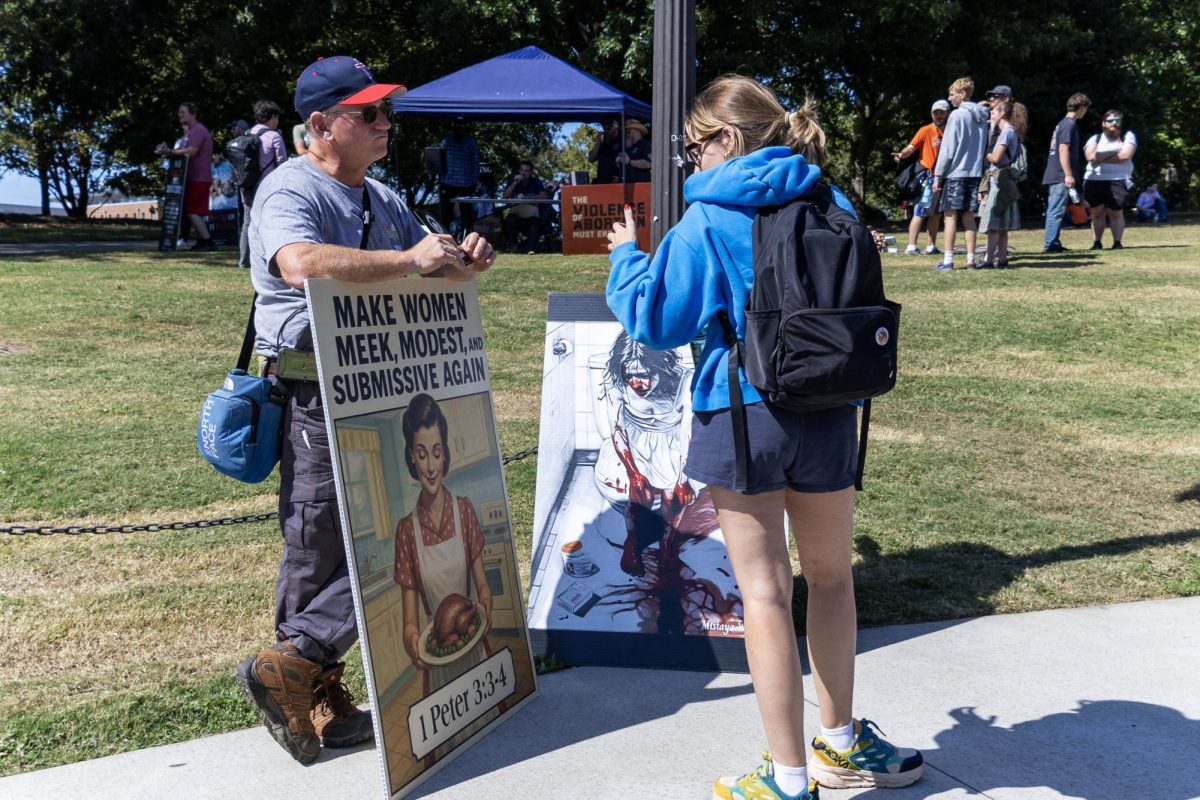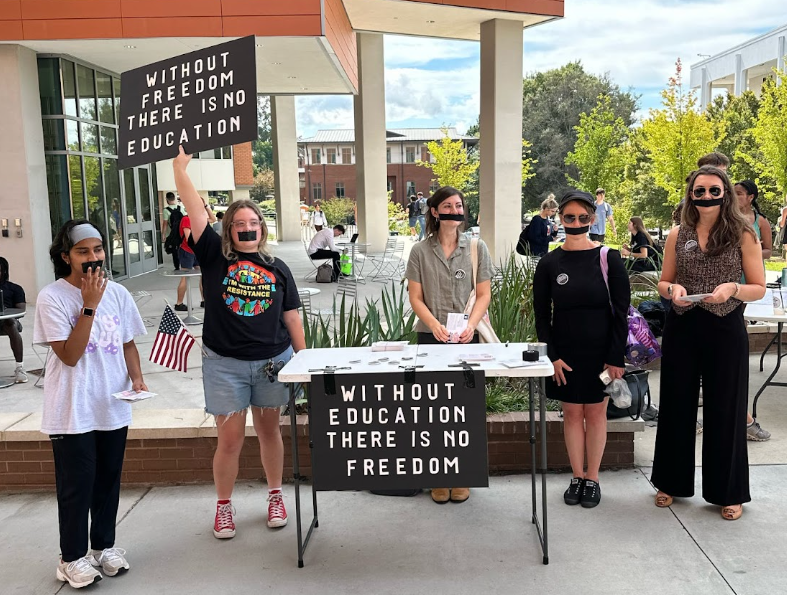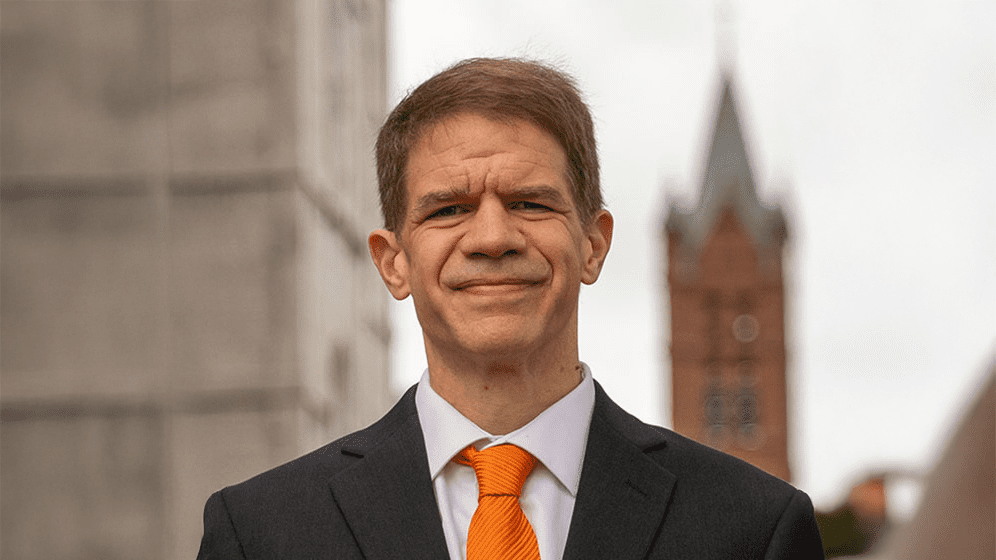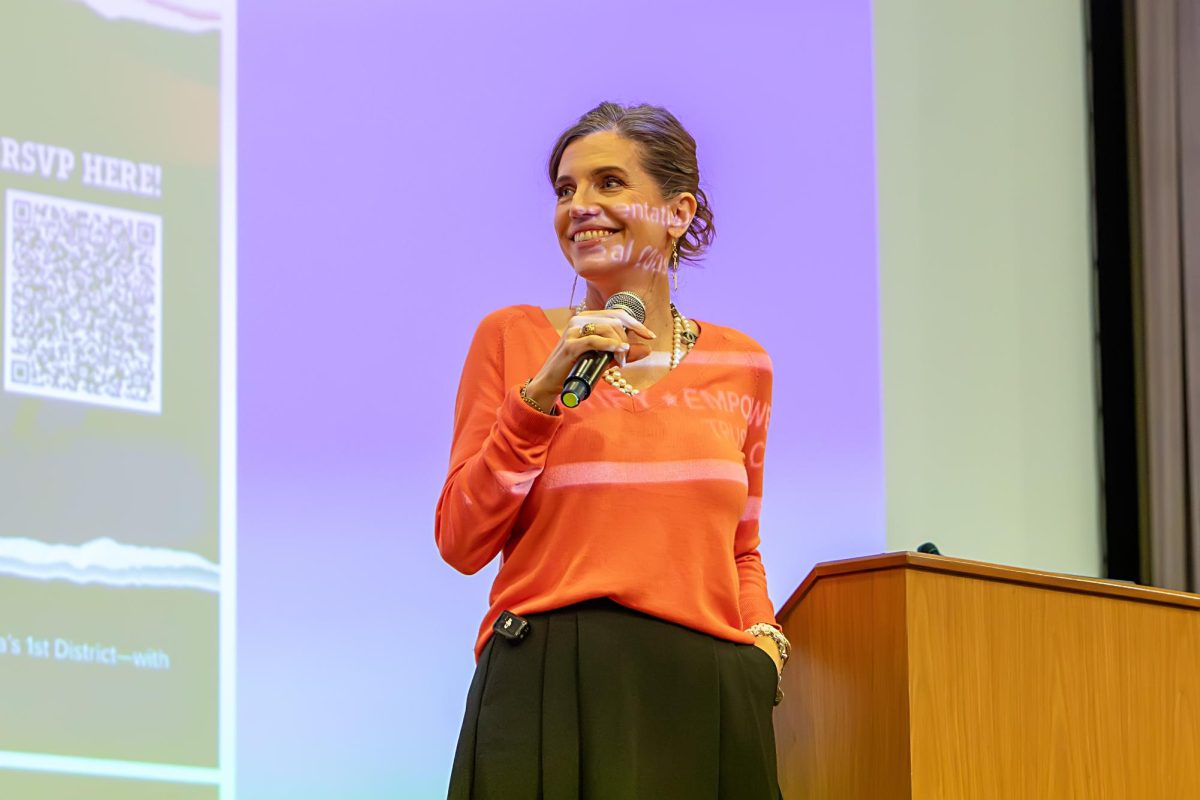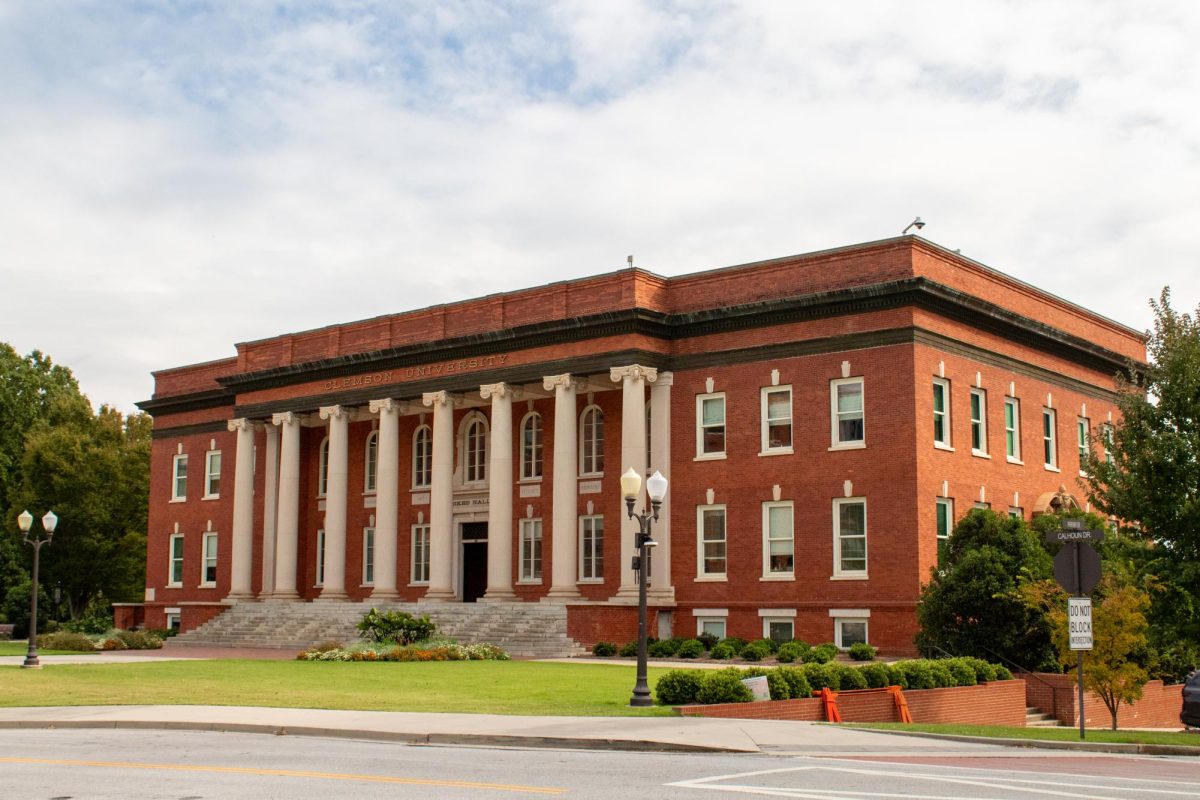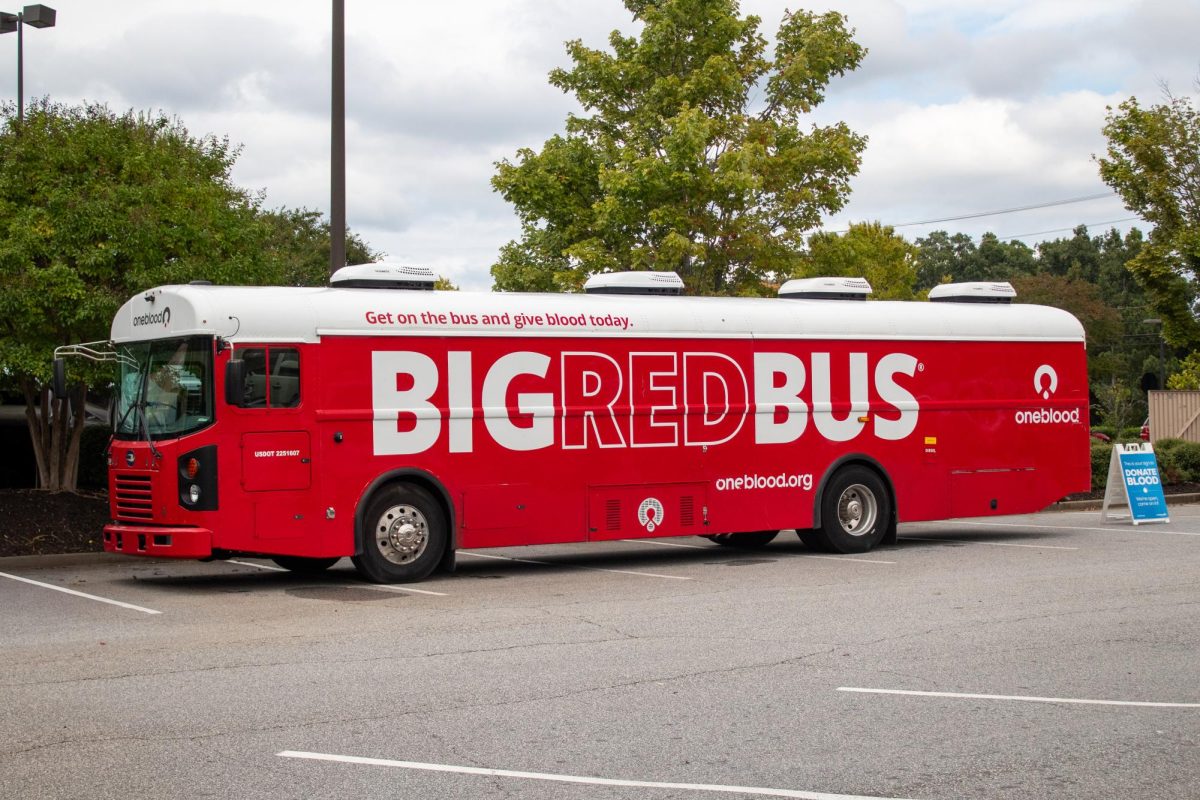On Oct. 20, the Tiger Senior Staff interviewed Clemson student Dhruval Patel regarding immigration and the upcoming I Stand With Immigrants Day of Action (ISWI). Patel is an Indian immigrant and is involved with ISWI through his membership in the Latin fraternity Lambda Theta Phi. In this interview, he discusses his experiences as an immigrant, DACA, his found family in Clemson and how to support immigrants.
The Tiger News: So, why don’t you just start by telling me your experience as an immigrant and your interaction with Clemson and Clemson’s community. Just a little background on your life and who you are.
Dhruval Patel: So I was originally born in India, and I immigrated to the US in 2003, Oct. 10, 2003, that’s actually my birthday that I came here. It’s like an anniversary and a birthday every year. I was there until age six, so I started to forget a lot of the stuff there like I forgot how to read and write and stuff like that. So we came here, bounced around for a little bit, finally settled in Charleston. For my experience as an immigrant, it’s been really quick in terms of, like, growing up. My parents didn’t really know English, so I had to do a lot of, like, the banking, legal stuff. They own a business now, so I do all their supplier stuff too so it’s been a really quick growing up. I’ve actually enjoyed it here [in Clemson]. I’ve been able to fit into a bunch of different groups. I met all these people that I’ve been rocking with, and they have been very inviting, very friendly, so I’ve actually, I’ve enjoyed the time here.
TN: When y’all came here, you went to Charleston. When you were growing up in Charleston, from age 6 to when you came to Clemson at 18, did you feel like you were able to find your group there? What did fitting in mean to you? Was it finding people that have the same culture, the same heritage, the same situation? Or was it just finding people that you can just easily talk to?
DP: In terms of finding, like, a cultural base of friends, it was pretty hard. Growing up, I didn’t really have too many Indian friends. A lot of my friends were American: Black, White, Hispanic as well. So I guess fitting in to me was people that I found easy to hang out with, easy to talk to. A lot of times, they had their own problems that they were growing up with, so we also united through, like, struggle too, it wasn’t just immigration.
TN: When your parents decided to come over here, was it to build that business, just to have more opportunities or just because they were tired of living there? Do you know what the base for that was?
DP: Yeah, so it was definitely opportunity; financial and a better opportunity for me. We weren’t, like, below poverty there but it’s definitely not as well of a life as I would have had if I didn’t come here. So I guess I said that backwards but, to have a better life here, yeah. But it was a combination of they were kind of tired of being broke over there, and they wanted a better future for me.
TN: So you said that you kind of forgot how to read and write in that atmosphere. Do you ever think ‘hey, I want to invest in relearning how to read and write ?’ What’s your tie to your heritage and your culture while being in Clemson, South Carolina and the American south?
DP: Yeah, in Clemson, I don’t really have, like, a big tie to my culture, but when I do go home, we just, like, speak my native language, Gujarati. So it keeps me tied back, like family is really who keeps me tied back.
TN: So you do continue to speak the language?
DP: Yeah, so I can fluently speak it. Oh, and then the other part was if I ever wanted to learn it [reading and writing in the native language] again. I was thinking about taking, like, a year off and maybe going back to India for a year to relearn it. I’m not really sure, because I do want to start working when I graduate, you know? So I’m not really sure. I’ll figure that out closer to May, but I definitely want to relearn reading and writing. So in India, I learned Gujarti and Hindi. Hindi is the main language, but I forgot also how to read and write in Hindi as well, and speaking it is kind of choppy too, because I don’t speak it too frequently.
TN: So, when you are at Clemson do you feel more at home than you did in Charleston? I know that your parents are there, but student community wise?
DP: I wouldn’t say more at home but more of a different group. Like, one of the biggest things as an immigrant is trying to find your family, and the biggest thing that I found is that your family can be whoever you make it to be. So it’s not that- it’s just I have, like, a different connection here then I do at home. At home I have more of a connection to my ancestry and my heritage, and here I have more of a connection to the people that I grew up with, people who I want to hang out with.
TN: So, the ‘I Stand With Immigrants’ day, what are you doing with that? Or are you just kind of advocating for that? What is your personal connection to it?
DP: So I wasn’t really assigned too much work for it, but we [Lambda Theta Phi] will be. So, we’re actually tabling for it too, so that’s like my only connection to it. I didn’t really do too much of the planning behind it, but I’ll be out there tabling [on October 22], and I’m also advocating for it, too.
TN: So I know that IWIS Day of Action is raising awareness for DACA, since the Supreme Court is reviewing those cases in November. As an immigrant yourself, what are your thoughts on the upcoming court cases, and what can people who aren’t immigrants, but want to support all the other immigrants, can they do to help?
DP: So in terms of DACA as a whole, I think that kids brought here by their parents, legal, illegal, should be considered American. Just taking myself into different shoes, if my parents had came here illegally and brought me here illegally, I don’t think that it would be fair for anyone to treat me any differently, just because I didn’t have the documentation. I consider myself American as well, so if I was illegal, I think that I would still consider myself American, just because I grew up here with the culture. In terms of what people can do, this year is an off year for the election, but next year, I think the biggest thing would be to reach out to the congressmen, vote for candidates with better immigration policies, DACA students as a whole. In terms of court, like the court cases, I think the only thing you can do at this point is to increase awareness. I think that the biggest thing is that a lot of people just don’t know and have misinformation about it.
TN: Understood. Will you tell me a little bit about your fraternity and what y’all do to raise awareness about the importance of your culture and heritage on this campus?
DP: So the fraternity is Latin based but not exclusive. It’s, like, going back to the whole ‘your family is who you find it to be,’ so I found a family here with the Hispanic community as well. So, we do a lot of cultural awareness programming; we do fundraising for our philanthropy, CHCI, which sends younger kids from different backgrounds, primarily Hispanic kids, to go talk to national leaders in our congress. So, it’s like preparing the next generation of leaders. It’s going all the way back to federal immigration policies for DACA students. We’re trying to raise awareness for these kids to get into politics because there is underrepresentation. Another event that we have upcoming is a trivia night for Latin heritage and African American heritage, as well. So it’s a collaborative event with a POC fraternity, Alpha Phi Alpha. We’ve also done other events where we educate people and collaborate with the other orgs on campus too.
TN: So for the last couple questions, what kind of advice or words would you have for someone on campus who is an immigrant and just isn’t as comfortable as you are? How can they find their ‘found family,’ and how can they experience their culture while feeling protected? Obviously, we’re in the South, and a lot comes with that, so what words of advice would you have for someone that might not be as outgoing but still wants to be involved in their heritage while in Clemson?
DP: I think the biggest thing would be to join the student organizations. When I came in here, I was definitely a lot more introverted, too. So, I think it comes with time as well; so, the biggest step I think immigrants can take is to get involved with themselves, out of the comfort zone, and eventually they’ll start picking up on social cues and start to fit in and finally get their voice out.
TN: Thank you for meeting with us and sharing your story.
Note: responses have been edited for length, clarity and accuracy.




